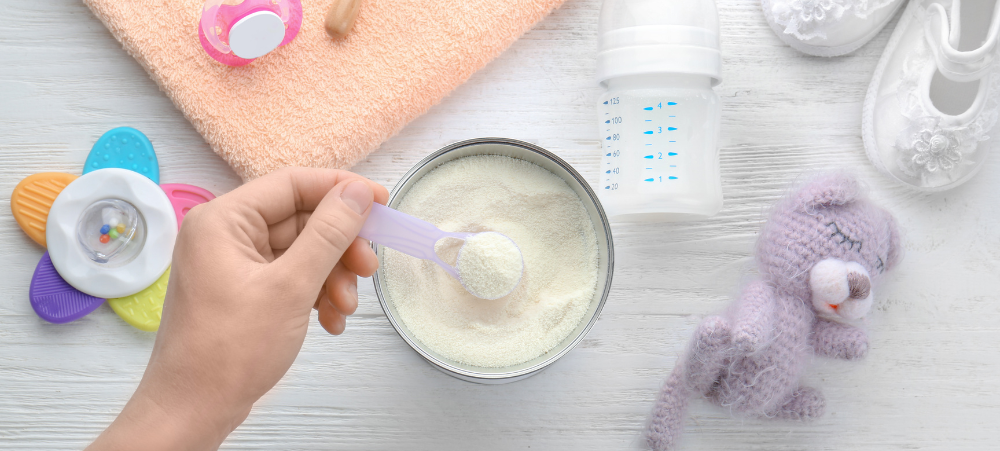If you read between the lines on a study done in 2007(1), it seems that babies born by caesarean section are a lot more likely to suffer from allergy-related diseases if you don’t supplement probiotic bacteria.
Caesar babies are born with sterile digestive tracts. If you don’t correct this, your baby may not be equipped to:
- Digest lactose,
- Manufacture Biotin (a B vitamin) or vitamin K2,
- Properly absorb their minerals, and
- Keep harmful bacteria in check.
- As a result, their immune systems may also be weaker.
Babies in the womb have sterile intestines. When born naturally through the birth canal, they swallow vast amounts of bacteria and start the process of developing a healthy bacteria-filled intestine & mouth (and in girls, the vagina).
Every person has a large number of bacteria in their bodies. If you are healthy, you will have a balanced mix of friendly, good bacteria and bacteria that would harm you if allowed to. Adults have around 2.5kg of bacteria spread between their small and large intestines. Kids have a proportionately smaller amount depending mostly on their body size.
Every time you touch things around you, you pick up good and bad bacteria. When you avoid it, you do your immune system a disservice because your body is built to handle this contact. In fact, it thrives on it, and without it, your immune system can become weak and ineffectual (this is known as the Hygiene theory (opens new window))…
Good bacteria do many things for us, including manufacture some B and K vitamins, improve digestion & absorption (especially of milk and minerals), and keep harmful bacteria under control so they can’t multiply beyond safe levels and make us sick.
The study in question focused on 1223 mothers whose infants were thought to be at higher risk of developing allergies because at least one parent had been physician-diagnosed with an allergic disease. Each mother received a mix of 4 strains of probiotic bacteria or a placebo during the last month of their pregnancy. Once born, their babies were given the same mixture plus a prebiotic galacto-oligosaccharide from birth until six months of age.
At five years old, the children were examined for symptoms of eczema, food allergy, allergic rhinitis (hay fever), and asthma. The study concluded that the probiotics did not significantly protect children from allergies – except those who had been born by Caesarean section. This group had a 53 percent lower chance of developing an allergic disease.
Let’s unpack that
If your baby is born by caesarean section, it’s a good idea to give them a probiotic supplement to start the colonization of their intestinal bacteria. If either parent has allergies, it becomes much more than a good idea. Just by supplementing with a probiotic, you can cut their risk of developing your allergies in half. Of course, there are other things you can do that will add to that figure, but this on its own is a fantastic start…
Healthy-kids.co.za recommends…
When your baby is born by caesarean section, make it a point to supplement with a probiotic that contains at least 1 Billion bacteria, including at least these strains of bacteria:
– Lactobacillus Acidophilus – Bifidobacterium Bifidus
Choose your supplement carefully to ensure that the bacteria are live and effective – and you may like the trustworthiness of the GNLD Acidophilus Plus supplement. To give it to a baby, simply ease open the capsule and pour a little of the powder directly onto your baby’s tongue once a day. Divide each capsule over 5 days. Continue for 8 weeks.
If either parent has allergies, then mom should supplement 1 capsule of GNLD Acidophilus plus each day for the last month of her pregnancy, give this same supplement to your baby for their first 6 months.
About the writer: Tracy Hesslewood owns www.healthy-kids.co.za
We understand that there are many aspects that encompass a Mother, Father or Child and strive toward providing resources and services that accommodates this.
Our content is aimed to inform and educate families on issues starting from pregnancy through to the challenges of the teen-age years.
- Say Hello to the Ultimate Holiday Brunch Bite - December 17, 2025
- Tiny Toons Looniversity Returns: Meet the Voice Behind Plucky and Hamton! - December 12, 2025
- From Pain to Possibility: Panado®’s New Marketing Campaign, Highlights The Joy Of Pain Relief - December 10, 2025






